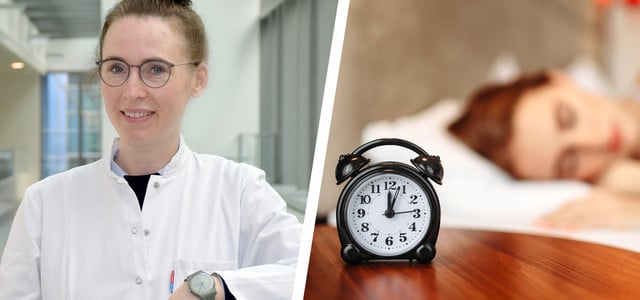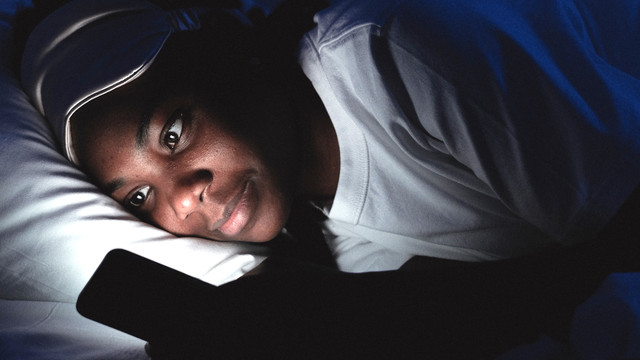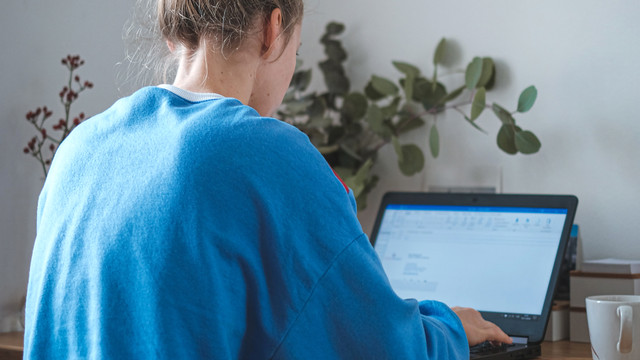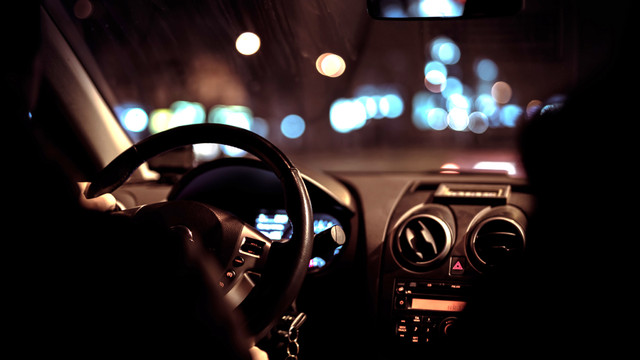
Sleep doctor Anna Heidbreder reveals in the Utopia interview what helps you fall asleep, why some people had more restful nights during the corona pandemic and why sleep resists self-optimization.
The opinion research institute YouGov 2022 found out on behalf of the German Press Agency that 40 percent of adults in Germany say they sleep badly. But how do you find a good sleeping rhythm and what can you do if your brain just won’t rest in bed at night? Utopia spoke to Anna Heidbreder about this.
Anna Heidbreder is a specialist in neurology and sleep medicine at the Medical University of Innsbruck and a board member of the German Society for Sleep Research and Sleep Medicine (DGSM). In the interview, she not only gives valuable tips for healthy sleep. She also explains why our working world does not match our internal clock and why the corona pandemic of all things has (temporarily) brought about an improvement.
In addition, the sleep expert reveals which method helps acutely in restless nights to fall asleep better, and whether sleeping before and catching up on sleep really works.
Sleep medicine specialist Anna Heidbreder in an interview
Utopia: Ms. Heidbreder, did you sleep well today?
Anna Heidbreder: Yes. I went to bed much too late, but then slept very well.
Many people don’t succeed. What do you do to get a good night’s sleep?
The most important thing is to consciously end the day, for example with a sleep ritual. The word ritual always sounds so special, but ultimately everyone has some kind of evening routine. For some, this means drinking tea, for others putting on warm socks and going to bed.
It’s unwise to stress yourself out, quickly checking emails or checking social media to see what’s going on. Light also plays a role. We now know very well that light with a high blue content, such as that emitted by mobile phone and laptop displays, reduces our melatonin production and thus makes it more difficult to fall asleep.
But what if I have a blue light filter in my glasses or turn on night mode on my cell phone or laptop?
It depends on. It is certainly better if as little blue light as possible reaches the retina. But one must not only focus on the light itself, one must also consider the activity. If I’m still working on the PC shortly before going to bed, have to think a lot and am highly concentrated, I naturally need some time to “shut down” again.

How much sleep do you need?
A quick internet search reveals that adults need an average of seven to eight hours of sleep. But how do I find out how much sleep is best for me personally?
You can take the seven to eight hours as an approximate basis and then test: How do I feel when I go to bed at 10 p.m., at 10:30 p.m., at 11 p.m.? Just try it out for a week at a time and see if you feel better or worse. This helps you to determine how much sleep you need.
But important: It’s completely normal to need a little bit to get going in the morning or to be a bit exhausted by midday. But as long as you don’t have an insane low and feel rested and recovered enough to be able to cope with everyday life, you can assume that you are getting enough sleep.
It’s perfectly normal to take a little time to get going in the morning.
Anna Heidbreder
Catch up on sleep or sleep ahead: is that possible?
Suppose you don’t sleep enough during the week, but then take a nap at the weekend to make up for it. Does this catching up on sleep work at all?
Yes. It’s a classic that at the weekend you might sleep an hour longer in the morning or take a nap in the afternoon. The body actually gets back the sleep it missed during the week.
And what about pre-sleep? Does that work too?
That does not work. If you are on night duty, for example, you can rest beforehand so that you can go to work more relaxed and maybe a little more relaxed. But to bring sleep forward is not possible.
Is it a health risk to constantly catch up on sleep at the weekend?
Regular sleep during the week is certainly cheaper, but the reality is often different.
How the pandemic affected sleep
This was clearly seen during the COVID pandemic: a large field study resulted more or less by chance, and we were able to observe that sleeping times had shifted back somewhat. Morning bed time had increased, as had overall bed time. Catching up on sleep at the weekend, which can and could be observed outside of the Corona period, had decreased.

This shows that with our lifestyle that we have in Central Europe and North America, we live a bit against our clock. We probably start work too early, but don’t go to bed that early in the evening.
But if – as in the pandemic – the social obligation to leave the house in the morning is eliminated, then the sleep-wake cycle really improves and we no longer have this pent-up need at the weekend.
So people who work from home have an easier time getting a good night’s sleep?
Possibly so. Of course, it’s not that easy anymore since the Corona measures were lifted. Those who are at work in the morning may want to have the video conference at 7:00 a.m. or 8:00 a.m. and then you still have to get up early. But yes: working from home can be an option to sleep better.
Can you influence your sleep needs?
Why do some people need more sleep than others? Is it more genetic or does it also have something to do with lifestyle?
This is due to our internal clock and it is genetically determined. But it ticks a little differently than a real clock. For most of us, it clocks in at just over 24 hours. But there are also extremes that are shorter or longer. But whether you are a late, short or average sleeper is determined by your genes.
For example, if I want to run a marathon, I can train for it and my body will adapt accordingly. But can you get used to less sleep?
No. Even if you get used to sleeping only five hours a week. Then the body still gets it back at the weekend as soon as you have the opportunity. Self-optimization related to sleep does not work. You just have to accept that.
Self-optimization related to sleep does not work.
Anna Heidbreder
Consequences of not getting enough sleep
What happens if you hardly or not at all sleep a night?
In fact, just one night without sleep significantly increases your risk of catching a cold virus the next day. It has been shown that people who are vaccinated produce fewer antibodies when they are not sleeping. It is also said that when you drive your car after night shift, you are as alert as when you have a blood alcohol level of 0.5. This has immediate consequences.

What if you have persistent sleep problems?
Chronic sleep deprivation increases the risk of cardiovascular, neurodegenerative and mental diseases, among other things. But you have to be careful there. We have not yet fully understood the causal relationships. What is certain, however, is that a sufficiently regular sleep is very beneficial for health and that chronic sleep disorders should be recognized and treated in order to avert risks.
Trick to sleep better
Now when I lie in bed and just can’t fall asleep. Is there anything that helps urgently?
Yes. They used to say count sheep, and maybe that wasn’t such a bad thing. I think the first thing you should do is try to think of something trivial that feels familiar and comfortable. This can be, for example, the idea of a walk on the beach or a hike in the mountains that you remember. Because the brain cannot be switched off. If I think I don’t want to think, then I’m already thinking. That does not work. And that’s why you have to offer the brain something to think about, which at best doesn’t prevent sleep.
What about other methods of falling asleep? Some meditate, others listen to podcasts or audio books. Does this make sense?
Meditation, podcasts, or audiobooks can help some people focus their brains on something else and thus fall asleep more easily. However, these methods can also be potentially stimulating. Therefore, everyone has to test it individually for themselves.
In people with insomnia, for example, relaxation techniques such as muscle relaxation according to Jacobsen are used, because physical rest sometimes also calms the mind.
But if none of that helps, when should you see a doctor about your sleep problems?
I think there are situations in life where it’s normal to have a bad night’s sleep. But if it lasts more than three months, then it is really urgent to see a doctor and get help.
Read more on Techzle.com:
- I slept in every day for a month and I don’t want to do it again
- Sleep tourism: When people travel to sleep in
- Ingo Froboese: “Going for a walk can make you fitter – under certain conditions.”